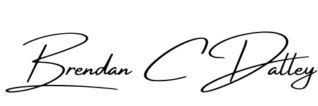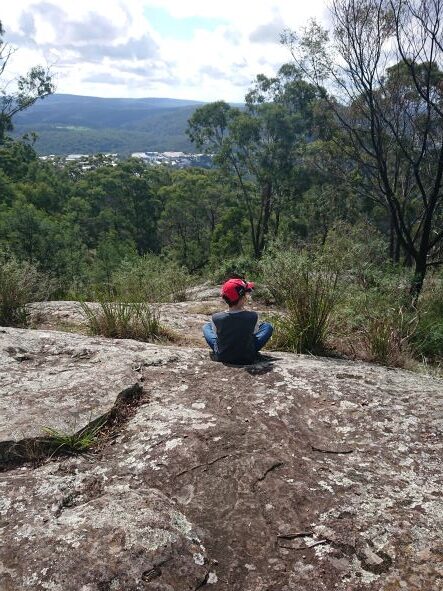Kramer: See you’ve got to listen to the little man. Your little man knows!
George: My little man is an idiot.
Seinfeld
We all have a voice in our heads. Not an audible one that tells us we are a chicken, hopefully, but one that we have always known. One that tells us what we think, how we feel and what we should do. Now while we can be one hundred percent certain that this inner voice has our best interests at heart, it unfortunately doesn’t always give the best advice. Don’t get me wrong, when it comes to fight or flight, basic senses and immediate reactions, the inner voice is perfect. However, when it comes to complicated feelings, big life decisions and difficult circumstances, that inner voice can miss the mark. We often allow other things to influence our decisions. We ruminate, catastrophise and allow emotions to dictate, to the point that the walls feel like they are closing in. This is when we need to take time, seek trustworthy advice and question our motives before progressing.
Putting yourself in time out
When the walls feel like they are closing in and the issues you face surround you like they are breaching the ramparts of your mind, is precisely when you need to step back. It is when you need to put yourself in timeout. The reason being that it is very difficult to make a clear decision when you are really emotional. Fear, irrational thinking and panic are much more likely to influence your decision at times like these. This is why, when at all possible, you need to put off those decisions until you have time to contemplate.
Time out isn’t about trying to take it easy. It is rather about giving your mind space to be calm and approach the issues at hand in a more balanced manner. This can be achieved in a number of ways.
1. Mindfulness: Mindfulness is a skill that you can learn, where you focus purely on the present moment without allowing anxiety in. Through meditation you learn to stop rumination and catastrophising for a time, giving yourself the space you need to be calm.
2. The flow: Being in the flow is where you go when you do something you love. It is where you find yourself when you think about nothing but what you are doing. For some it is surfing, for some playing music, or craft, cooking, walking or whatever. For me it is swimming laps. The key is to know yourself well enough to recognise when you need space to think.
Trustworthy advice
If you are lucky enough to be in a relationship with someone who has your best interests at heart, then you have been truly blessed. Still, sometimes the ones closest to us are subconsciously invested in our choices and decisions because they are understandably affected by them. When major life choices confront you, it is often best to also get advice from someone more impartial. A well chosen friend, relative or colleague is often good for this because they know us well enough to guide us thoughtfully. Sometimes we get the best advice during a walk and a coffee.
In some cases, it is often best to seek more serious advice. If you face a major professional, personal or health issue, then don’t be afraid to make an appointment to see someone trained in the field you find yourself. It will always be money well spent if you understand the key issues, be they legal, medical or personal. Consultants are on the payroll of every major company in the world for a reason. Everyone needs impartial advice at times.
Questioning depression » The Good The Bad and The Unrelated
Question your motives – contemplate
We all have preferences, things we value more than others, be it wealth, health, time off, family or a myriad of other things. Both consciously and unconsciously, we favour certain things in our lives. We need to accept that sometimes we make choices because they appeal to that side of our nature, not because they are necessarily the best thing for us. This is when we need to use that time out to question our motives and weigh up whether or not our choice is really correct.
Truth be told, sometimes the best choice for us is not necessarily the easiest thing either. Nor is it always the thing that provides the most money or the obvious reward. Sometimes the best choice will involve blood, sweat and toil and no one picks these more difficult options easily. Sometimes the best option involves great effort because what it brings is more esoteric and personal. These options deserve you giving them time, a little space and contemplation before acting on them.
Structure
It is often best when making choices and facing difficulties that it is done in a structured manner. Journaling and Cognitive Behavioural Therapy (CBT) provide skills and guidance in taking responsibility for whatever is happening in your life. By learning about the connections between our emotions and our decision making processes, we put ourselves in a much better place to question the motives of those inner voices.
In the end, difficult times and tough decisions are always a part of life. In many instances our inner voice will naturally express panic, anxiety and fear. The best way to challenge these common responses is to take time out to be calm, seek out genuine advice and learn to question your motives using techniques like Cognitive Behavioural Therapy. In these ways, your inner voice can eventually become something more trustworthy and reliable.
Change Your Thinking [Third Edition] : Edelman, Sarah: Amazon.com.au: Books


Thanks Buddy 🙂
Always welcome.
Pingback: Frozen to the spot: Fear and anxiety » The Good The Bad and The Unrelated